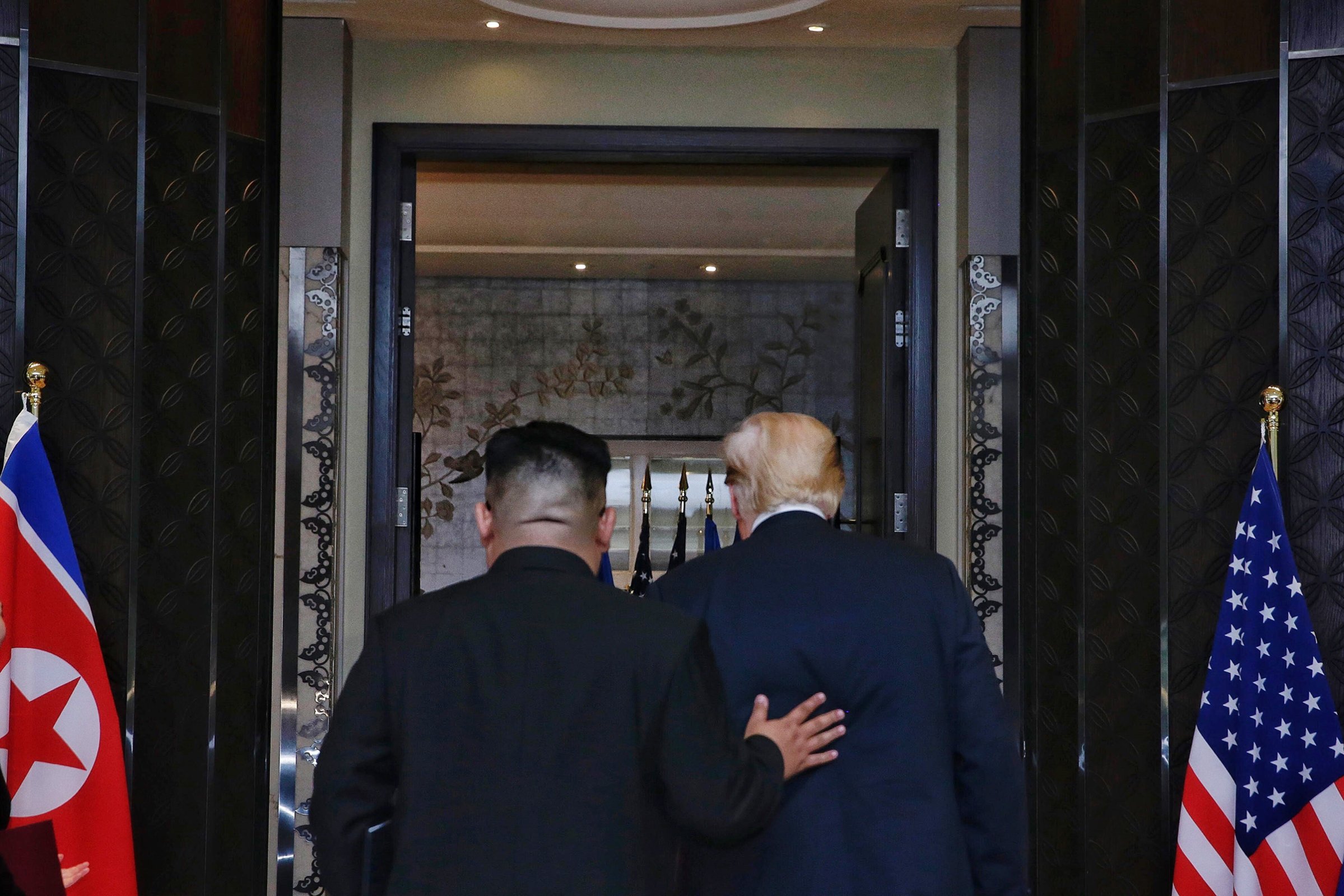
Kim Jong Un was anything but formidable when he first stepped onto the world stage in 2011. With head bowed, the 27-year-old wept before the casket of his late father Kim Jong Il. Rumors suggested the scion was a hard-partying libertine, while a CIA psychological profile painted him as an egotist who lashed out savagely at perceived insults. Intelligence officials doubted his rule would last longer than a few years and, if it did, only at the pleasure of North Korean elites who would control him from the shadows.
But the young dictator has turned out to be anything but a puppet. Kim defanged the powerful military by purging hundreds of top brass, including his powerful uncle Jang Song Thaek. He transformed the North Korean economy by ceasing collectivization and allowing the marketplace to thrive. The famines that claimed some 500,000 lives between 1993 and 2000 are no more. And he turned a fledgling nuclear program into President Donald Trump’s top foreign policy problem. He is estimated to have enough material for up to 60 nuclear bombs and has long-range missiles that can reach any U.S. city. “If your objective is to maintain a dictatorship, the last five years under Kim couldn’t have been scripted better,” says Daniel Pinkston of Troy University in Seoul.
The payoff for that Machiavellian maneuvering came when Trump met Kim in Singapore, giving the North Korean a degree of legitimacy his father and grandfather never achieved. Trump added to Kim’s win by nixing the joint U.S.–South Korea military drills that Pyongyang loathes, and by praising Kim effusively. Said Trump, “He’s a very talented man [and] he loves his country very much.”
That might be news to the estimated 100,000 North Koreans in forced-labor camps who are subjected to abuses that the U.N. has declared crimes against humanity. Under Kim’s regime dissenters are silenced, and border guards are ordered to shoot attempted defectors on sight. Kim ordered the gruesome public execution of his half brother Kim Jong Nam with the toxic nerve agent VX in the Kuala Lumpur airport in February 2017. Kim presided over the death, possibly by torture, of American student Otto Warmbier. And he has boosted his regime’s cyberwarfare program, launching the WannaCry ransomware attack that caused billions of dollars of damage in 150 countries.
Trump looked past all that at the Singapore summit, talking up instead the potential for condos on North Korean beaches. But experts see a different future, based on Kim’s moves so far. They find Kim’s pledge in Singapore of “unwavering commitment to complete denuclearization” not much more convincing than the similar agreements he and his predecessors signed and subsequently violated in 1992, 1994, 2005 and 2012.
Instead, Kim appears to be exploiting the rivalry between the U.S. and China. “North Korea wants to be the Pakistan of East Asia,” says Bruce Klingner, an analyst with the Heritage Foundation. Pakistan was sanctioned for nuclear tests in 1998, but improved relations with the U.S. by aiding the fight against Islamic terrorist groups. Kim may hope the summit is the first step in that direction. And indeed, Beijing has already loosened sanctions enforcement at its long border with North Korea, fearing the U.S. might be gaining influence in Pyongyang.
Achieving de facto recognition as a nuclear state and joining the global community as a peer would be an audacious, unlikely transformation for long-suffering North Korea. But Kim wanted nuclear capabilities and he has them. He wanted a date with Trump and he got it. The hated military drills are no more. Don’t bet against what Kim sets his sights on next. The dictator is on a roll.
More Must-Reads from TIME
- Cybersecurity Experts Are Sounding the Alarm on DOGE
- Meet the 2025 Women of the Year
- The Harsh Truth About Disability Inclusion
- Why Do More Young Adults Have Cancer?
- Colman Domingo Leads With Radical Love
- How to Get Better at Doing Things Alone
- Michelle Zauner Stares Down the Darkness
Write to Charlie Campbell/Singapore at charlie.campbell@time.com